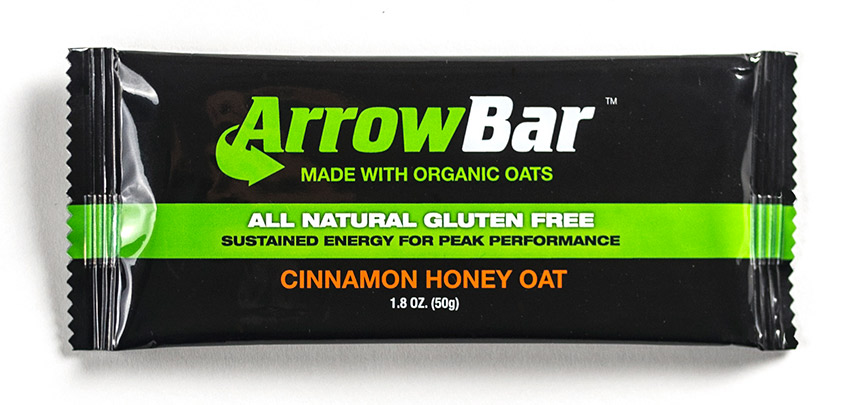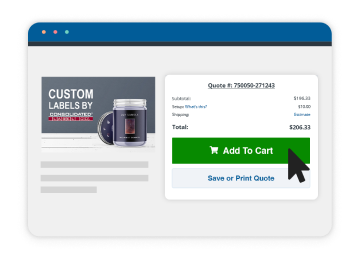
Whichever food bar you manufacture, custom wrappers are the most popular type of flexible packaging used to package them. In this how-to, we’ll explain what you need to know about wrappers to make the packaging process easier for you. (Please note that we only print flexible packaging. To package your product, you will need to have appropriate packaging equipment or a co-packer.)
Food bars – like granola and protein – are a favorite with busy consumers looking for a quick snack, meal replacement, or nutritional supplement. Convenience is a big part of their appeal thanks to single-serving custom wrappers which makes them easy to transport and store. Despite recent criticisms regarding their sugar content, consumers view these products as generally healthy. In addition to convenience and health, the market continues to see growth and new product activity due to trends like unique flavors, organic, and “free-form.” Along with granola and protein bars, other types of food bars are becoming more popular: nutrition, breakfast, energy, performance, and fiber – to name a few.
Benefits of Custom Wrappers
According to a 2015 Packaging World survey, 80% of brand owners agree that packaging influences brand value – and we totally agree. How your packaging works and looks is key to any successful sales strategy. That’s why custom printed wrappers make an ideal packaging for food bars. Benefits of wrappers include:
- Packaging appeal
- Product security and freshness
- Portability
- Easy to open
Another cool thing about wrappers is that they can be printed on film, foil, or paper materials to best suit your product and packaging design. Let’s look at these materials to see how they differ and why you would use one over the other.
Material Options for Bar Wrappers
There are several factors to consider when selecting a material for custom wrappers like product contents, design, and budget. We carry materials that are specifically designed for flexible packaging to create the desired shape and an airtight seal that protects the product from spoiling or tampering. Since you’ll be packaging a food product, it’s also important to note that the material must be safe for food contact.
The Food and Drug Administration (FDA) regulates the labeling and packaging of processed and raw foods like fruits and produce. Let your customer service rep know you’ll be packaging a food product so they can help you select a material from our FDA-approved list. Below are material types we can use for wrappers and other types of flexible packaging:
- Film: Durable with a high-end appearance, film works for a variety of products and is an ideal choice for greasy contents like gels and lotions.
- Foil: Available in metalized silver film or paper, foil adds eye-catching shine and visual appeal to wrappers.
- Paper: Typically less expensive and durable than film, paper works great with solids and powders. It has a less refined appearance which complements natural and organic aesthetics.
Since food bars are solid, you can pretty much choose whichever material best fits your unique needs, brand, and wrapper design. Next, we’ll discuss options on how to transform the printed material into a finished product.
Co-Packers and Form-Fill-Seal Machines
Wrappers and other types of flexible packaging require specialized machinery to package the product. Depending on your packaging requirements and capabilities, you can either outsource to a co-packer or you can purchase your own form-fill-seal (FFS) machine.
- Co-packers are a type of business that provides manufacturing and packaging services. Small businesses and startups, in particular, can benefit from a co-packer to get their products to market more quickly and without having to invest in expensive manufacturing and packaging equipment and labor. However, outsourcing to a co-packer means you have less control over the product. Check out our tips for choosing a co-packer to learn more.
- The other option is to package your products in-house with an FFS machine. There are two types of FFS machines for flexible packaging: horizontal and vertical (HFFS and VFFS respectively). Since food bars are solid and wrappers have a horizontal orientation, you will need an HFFS machine. There are a variety of HFFS machines on the market that are designed with varying capabilities to fit into different manufacturing settings. If you don’t have the capabilities, resources, or space to have a machine, then you may want to consider going with a co-packer for the time being. Check out our guide on FFS machines to learn more.
There are pros and cons to either method but after careful consideration, you should be able to determine which is better suited for your needs. Also, it never hurts to contact local co-packers and HFFS manufacturers for an expert opinion.
The packaging process can be complex but hopefully it’s clearer to you now that you have a better understanding of what’s involved. When you’re ready to get custom wrappers, let us know and we would be happy to get those printed and shipped to your facility or co-packer. For more information or to request a quote, please call us at 1-800-475-2235 or fill out the contact form below.


